New Report Unveils Key Drivers and Agents for Global Agri-food Systems Transformation
The report advocates for a multi-level governance approach and introduces a concise decision support tool for developing transformation pathways
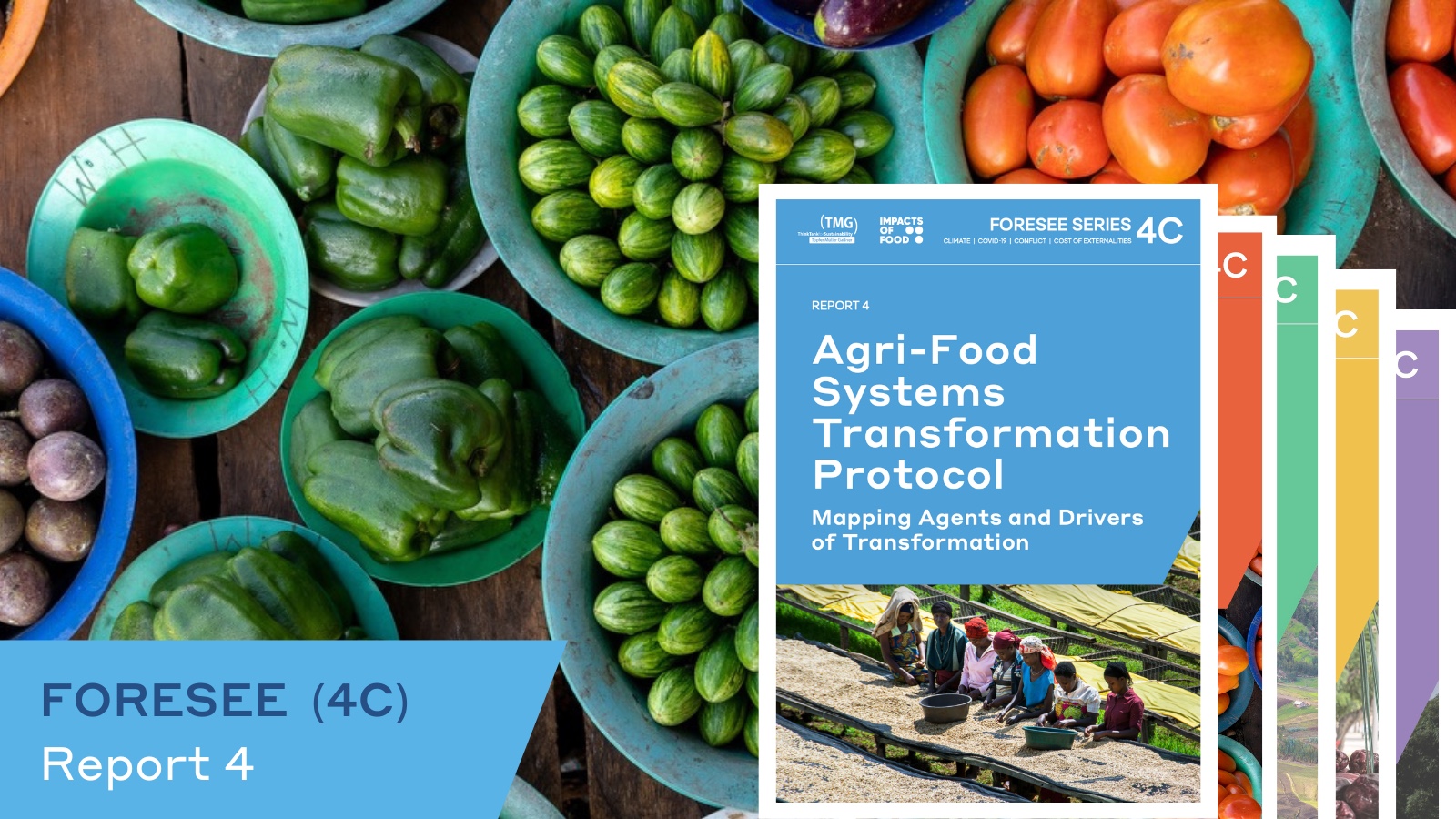
Multiple interlinked crises - collectively known as the 4Cs (Climate, (Post-)Covid, Conflict, and Costs) continue to impede advancements in globally agreed upon sustainable development goals and threaten the well-being of humans and nature. Despite widespread discourse and consensus that a transformation of our agri-food systems is necessary to meet these challenges adequately, the precise conceptualization of the term frequently lacks clarity.
The Climate Impacts of Food (CLIF) project, co-implemented by TMG, WWF Germany and corsus corporate sustainability, aims to develop a systematic understanding of the transformation of food systems. This includes the state of the debate, key actors and drivers, and strategies for concrete political and structural pathways to transformation. After a first set of three reports under the overarching title FORESEE (4C): The Transformation of Agri-Food Systems in Times of Multiple Crises, a fourth report is being launched: The Agri-Food Systems Transformation Protocol - Mapping the Agents and Drivers of Transformation.
The report acknowledges the consensus on the imperative transformation of agri-food systems to address global challenges but notes the lack of agreement on driving factors and the necessary agents supporting their implementation globally. The report advocates for a multi-level governance framework, incorporating global agreements (primarily the three Rio Conventions - CBD, UNCCD, UNFCCC), national pathways, and implementation. It introduces the Agri-food Systems Transformation Protocol as a decision-support tool at the strategic and operational level to guide diverse actors in the development of systemic solutions for sustainable agri-food systems.
To ascertain the agents ("who") and drivers ("what") pivotal for the successful transformation of agri-food systems, examples of food systems transformation were analysed spanning five continents. The findings reveal that optimal agri-food systems transformation is realized through governmental support, community leadership, and adherence to agroecological principles. Furthermore, a successful transformation pathway is distinguished by the presence of an enabling environment, typified by strong political commitment and active participation.
The full series, including the latest report, can be downloaded here.
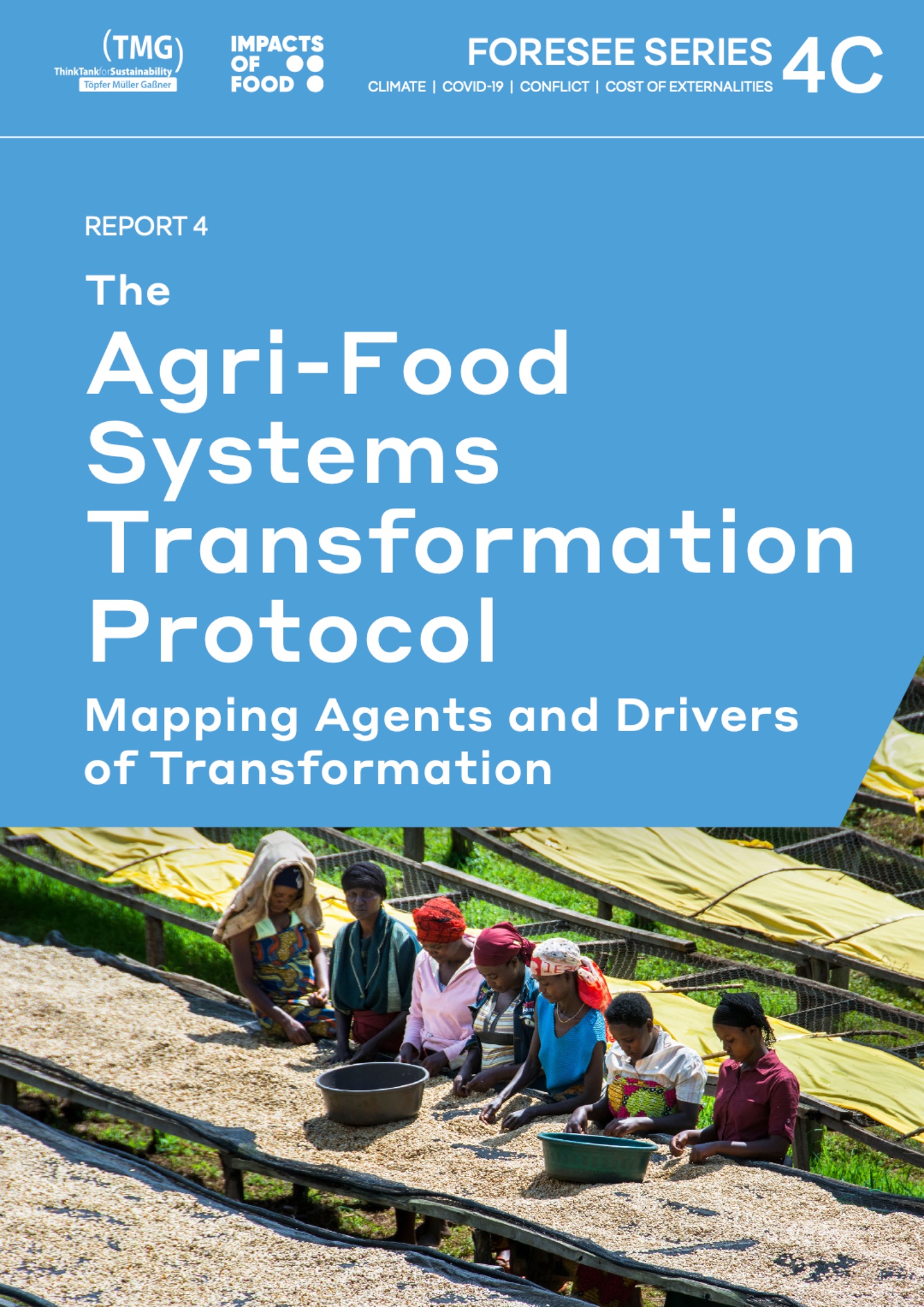
Report
FORESEE (4C) Report 4: The Agri-Food Systems Transformation Protocol - Mapping Agents and Drivers of Transformation
Exploring key actors and catalysts for agri-food systems transformation.
Written by Tavseef Mairaj Shah, Olivia Riemer, Nadia El-Hage Scialabba, Alexander Müller
Published on Dec 04, 2023
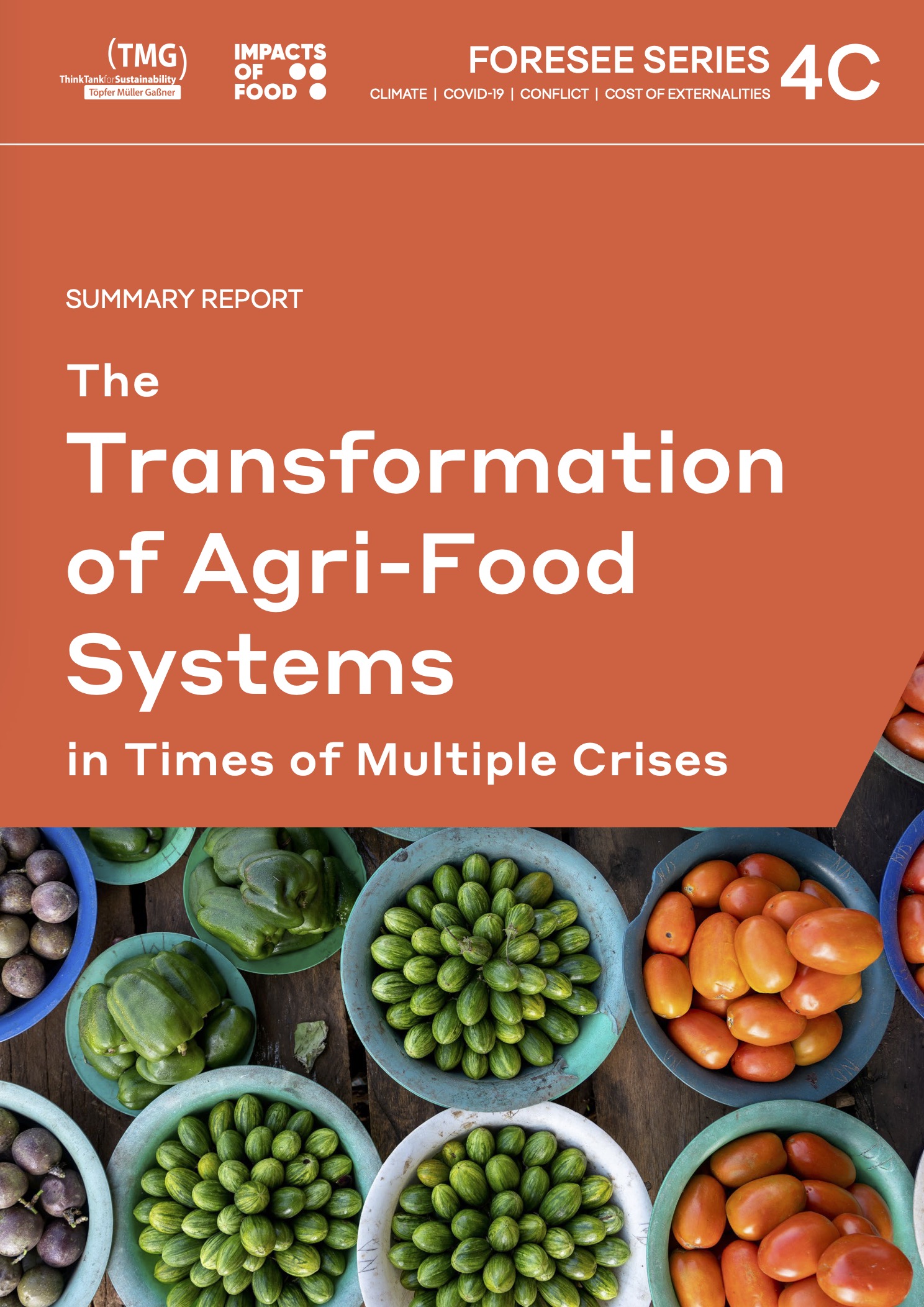
Report
FORESEE (4C) Summary Report: The Transformation of Agri-Food Systems in Times of Multiple Crises
Exploring equitable, healthy, resilient and sustainable pathways for agri-food transformation. This is a summary of the FORESEE (4C) series: Reports 1, 2, and 3.
Written by Tavseef Mairaj Shah, Olivia Riemer
Published on Apr 03, 2023
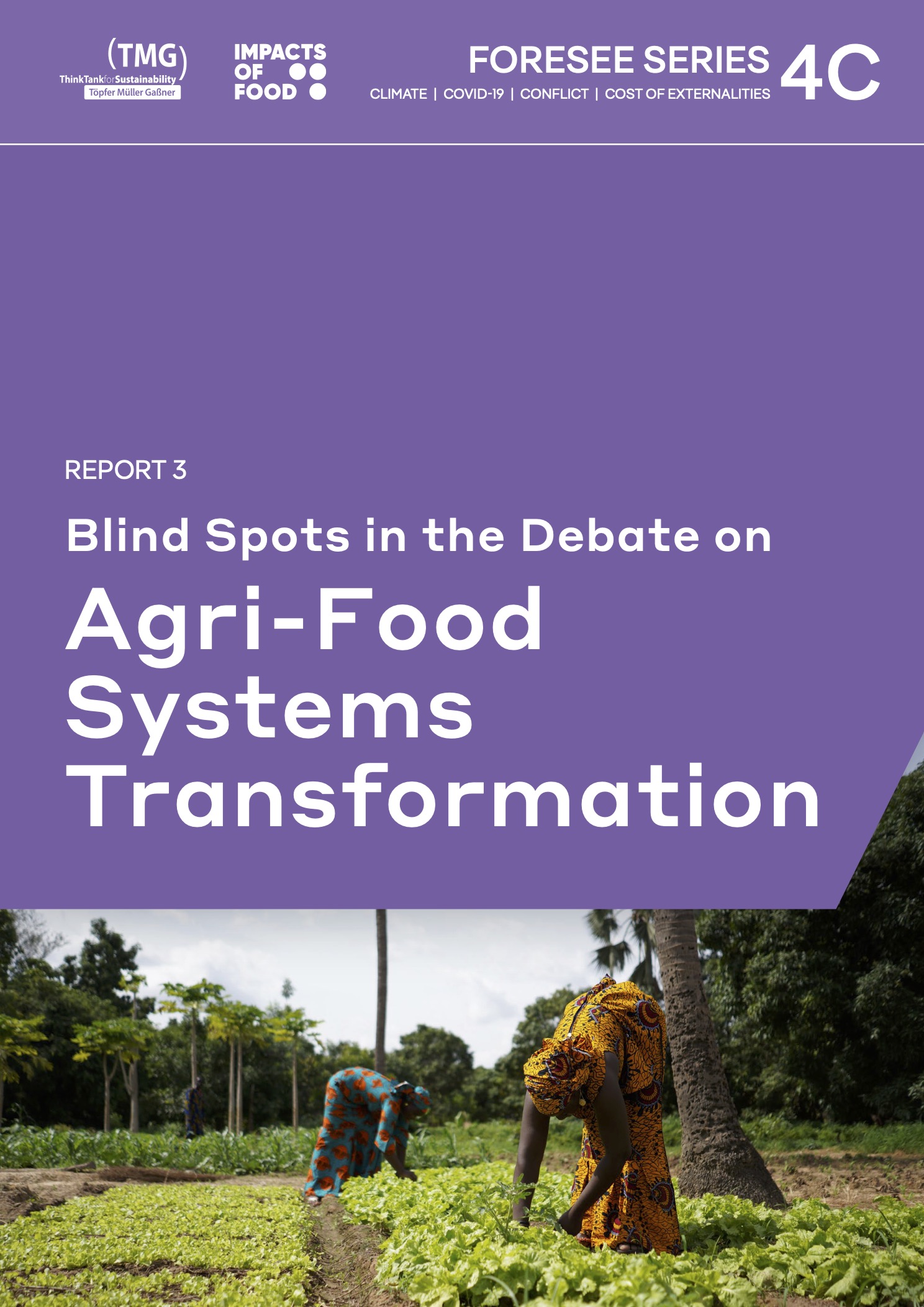
Report
FORESEE (4C) Report 3: Blindspots in the Debate on Agri-Food System Transformation
Analysing blind spots in the debate around agri-food systems transformation and how to address them.
Written by Patrick Caron, Maureen Gitagia, Michael Hamm, Ulrich Hoffman, Elizabeth Kimani-Murage, Tania Martinez-Cruz, Kathleen Merrigan, Pat Mooney, Olivia Riemer, Nadia El Hage Scialabba, Tavseef Mairaj Shah
Published on Apr 03, 2023
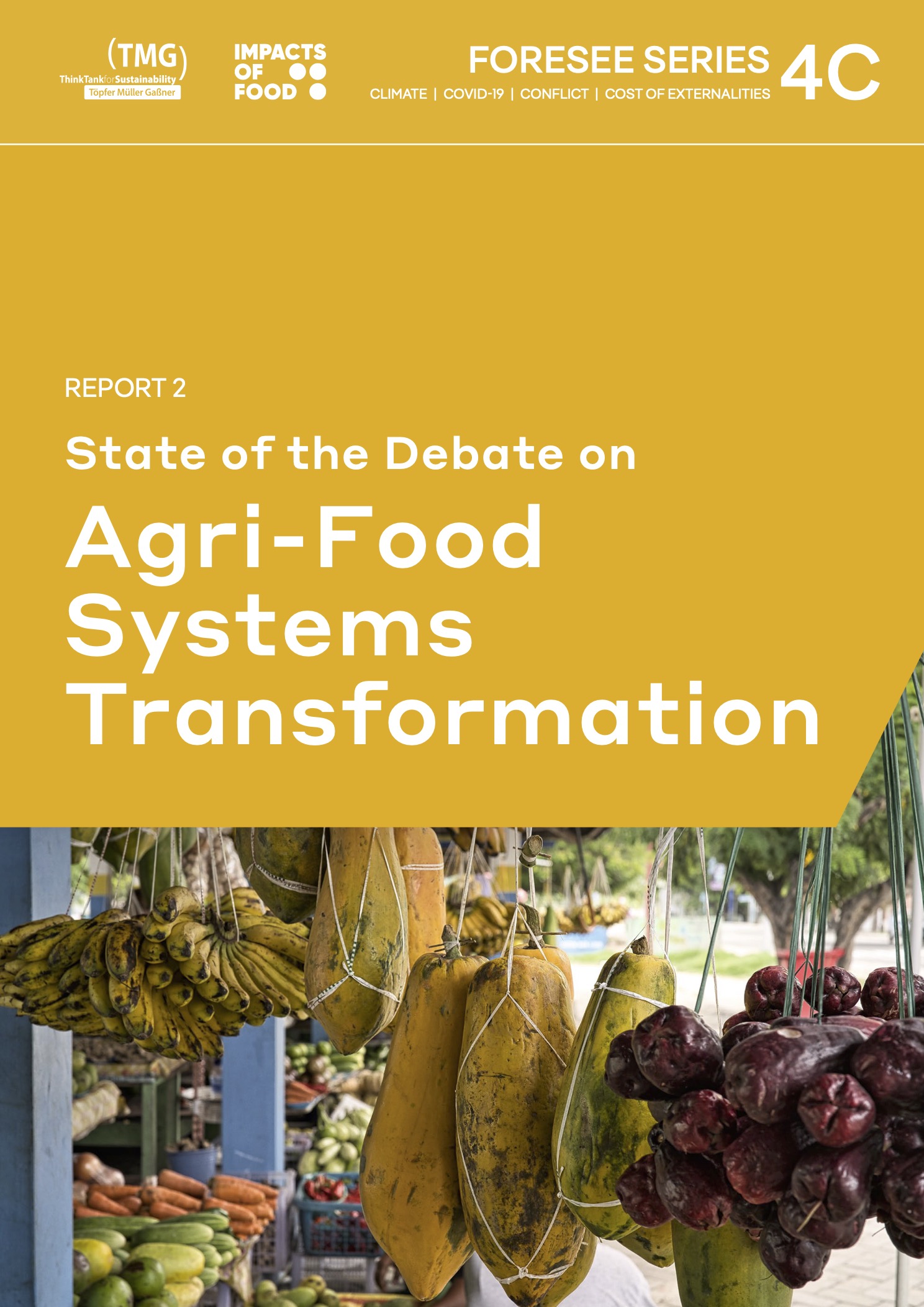
Report
FORESEE (4C) Report 2: State of the Debate on Agri-Food Systems Transformation
A multi-actor review of current debates around agri-food systems transformation.
Written by Nadia El-Hage Scialabba, Sarah Zitterbarth, Tavseef Shah
Published on Apr 03, 2023
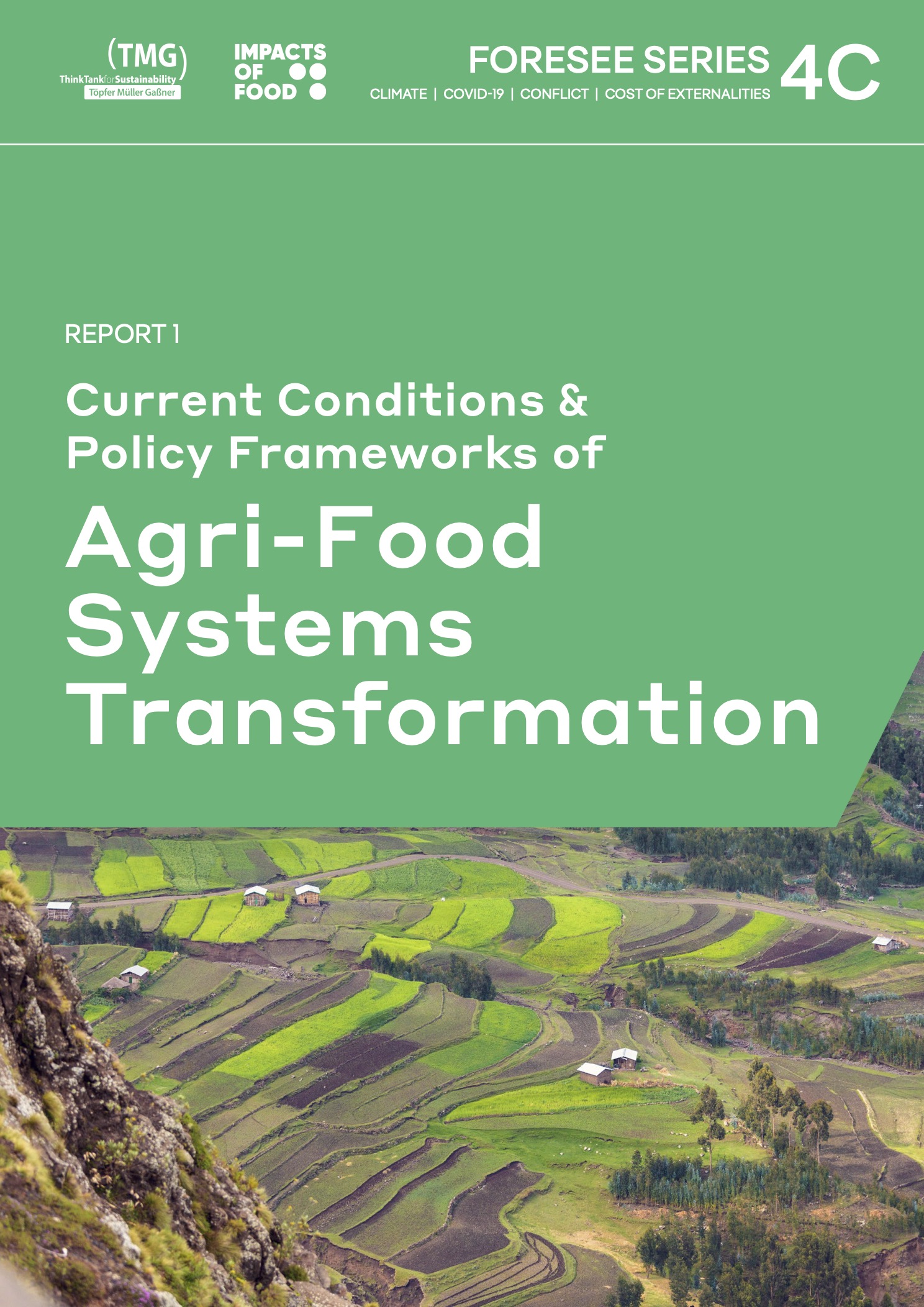
Report
FORESEE (4C) Report 1: Current Conditions and Policy Frameworks of Agri-Food Systems Transformation
Analysing the 4Cs and their interaction with agri-food systems
Written by Olivia Riemer, Tavseef Mairaj Shah, Sarah Zitterbarth
Published on Apr 03, 2023
